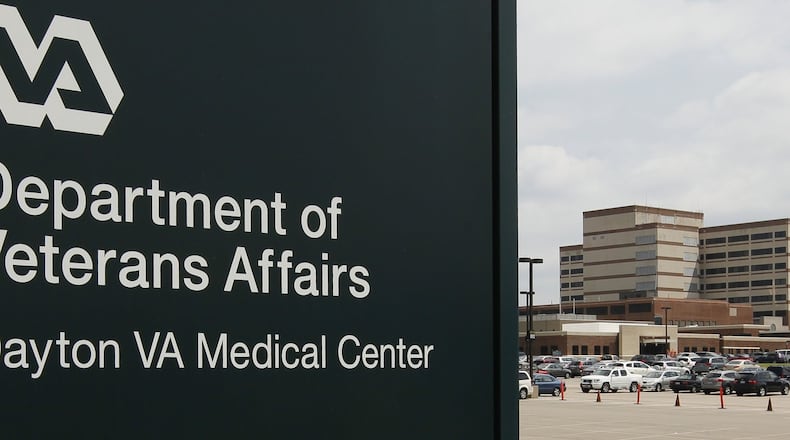“I never knew what I was given in those tests,” said Frank Rochelle, 76, of North Carolina, a former Army corporal whose service from 1968-1970 included a tour in Vietnam. “When I went to file a VA claim, I was told that the tests I took part in had never happened. The records were sealed. I had no way to prove my case.”
But a 2023 ruling in the U.S. Court of Appeals for the Federal Circuit in Washington is enabling Rochelle and other service members for the first time to obtain VA disability compensation retroactive to their date of discharge. An estimated 3,000 to 5,000 veterans who participated as human test subjects in classified studies that the U.S. Army Chemical Corps conducted at Edgewood Arsenal in Maryland are believed to be alive today.
The facility was established in 1948 primarily as a center for researching chemical warfare agents, but military equipment, protective clothing and pharmaceuticals also were tested at the facility, according to the VA. The Vietnam-era veterans were considered volunteers in classified studies that began in 1956. They signed consent agreements prior to participating in experiments but said later they were not informed of the risks.
About 7,000 military personnel participated in the tests until the Army disbanded the program in 1975, according to the Defense Department. Edgewood Arsenal now functions as the Army’s center for research, tests and development in chemical, biological, radiological and nuclear defense.
The court found the secrecy agreements that the participants signed, which carried the threat of criminal penalty if violated, effectively denied them due process and disability compensation to which they were entitled, said Mark Jones, the attorney for Rochelle and several other veterans.
“This decision importantly opens a pathway for all veterans who are under a secrecy agreement to pursue their claims, whether they are Edgewood Arsenal vets or not,” he said.
Rochelle’s case is pending a higher review in the U.S. Veterans Court of Appeals, which has already ordered retroactive compensation this year in three other cases involving Edgewood veterans.
Jones said though the VA states it now has a process in place for Edgewood Arsenal veterans to file to receive benefits, the agency continues to delay decisions and deny their claims.
Terrence Hayes, the VA press secretary, said the VA does not have figures on how many Vietnam-era veterans have submitted claims for retroactive payments related to illnesses and injuries from serving as test subjects at the Edgewood Arsenal.
In 2023, Army veteran Bob Taylor of Idaho was the first veteran to receive disability compensation retroactive to his military discharge for illnesses and injuries that he suffered after participating in the classified research project, according to court documents.
Taylor’s attorneys first argued in U.S. Court of Appeals for Veterans that he was entitled to compensation back to his discharge date of 1971.
But the court denied the claim, which was then appealed in U.S. Court of Appeals for the Federal Circuit in Washington, D.C.
That court ruled the government-imposed secrecy that kept him silent about his medical problems entitled him to receive disability compensation dating to the day after he was separated from the military.
“I went to Edgewood, and my whole world fell apart,” said Taylor, a 73-year-old former private.
Taylor, who served from 1969-1971, has been diagnosed with multiple cancers, depression, insomnia and post-traumatic stress disorder.
“I’m trying to stay alive and see this case to the end,” he said. “This is not just about me. I’m fighting for all veterans to get their full benefits. You don’t leave your brothers and sisters behind. Anyone who signs a secrecy agreement should be able to get their claims prosecuted.”
He and other Edgewood veterans said they thought they had volunteered to test military equipment in the 1960s and 1970s but were directed instead to military research labs for human trials using chemical substances they received in gas chambers, by injection and other means.
“The court holds that when a veteran has been determined to be entitled to benefits for one or more disabilities connected to participation in the Edgewood program, the required effective date of such benefits is the date that the veteran would have had in the absence of the challenged government conduct,” according to the ruling.
Taylor was exposed to at least three highly poisonous chemical agents during the Edgewood experiments, according to court documents. Some of the agents were known only by numbered references with the prefix “EA” for Edgewood Arsenal.
They were EA-3580, a form of sarin gas; EA-3547, a derivative of tear gas, and scopolamine, a highly toxic chemical test as a “truth serum” but that can cause psychosis.
The service-connected illnesses and injuries of Taylor and other veterans from the experiments were not recognized by the VA until the secrecy agreements were partially lifted by the Defense Department in 2006, according to court documents.
“We were lied to about our reasons for going to Edgewood. We thought that the Army was testing equipment to better the forces,” said Rochelle, whose medical problems from his experiences at Edgewood made him “unemployable,” according to VA records. “This has been ignored for 30 to 50 years.”
About the Author
